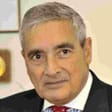ANNUAL SURVEY: STARS OF CHINA
By Arthur Clennam
The companies and banks selected as this years Stars of China are masters of adaptability and growth in a changing market.
Global Finance
embarked on its third annual Stars of China in a period of enormous change. Since the previous edition of the awards, a new government has taken the reins, the economy looks to be on a slowing path, and the key question for Chinese companies and multinationals in this environment is, How do I manage my business in the volatile years to come?
This years Stars of China addresses this query by identifying and applauding those companies and the financial institutions that support them in their quest for adaptability, innovation, imagination and sheer grit to master the worlds most promising, and one of its most difficult, markets.
Why promising? Because China is changing. GDP growth levels are expected to drop to around 7% per year as the government enacts a long-term plan to rebalance the economy toward consumption, away from investment-driven bubbles and a reliance on exports. But this expected level of growth in the worlds second-largest economy is astonishing all the same, and those companies that tap the markets developing amid the shift will secure a strong future. Reasons to embrace the current environment abound.
Experimentation in economic improvement is in the air in China. In the last week of September, the nations cabinet approved a plan to create a free-trade zone in Chinas striver city of Shanghai, one that, if initial plans are adopted, will prove an experimental ground for interest-rate, administrative and financial liberalization.
Meanwhile, the new government has shown some resolve in addressing the dangerous levels of creditincluding shadow creditin the banking system, which is now at around 200% of GDP. Banking reform could help precisely that group of companies that have heretofore found it tough to obtain affordable credit: the small and medium-size enterprises that are considered the healthiest entities in the system.
But a key question looms large for the country. Is Chinas growth accelerating or collapsing? Lately, growth has been rising, but, analysts agree, that is because the government, worried over slowing growth, has quietly injected a mini-stimulus in key industries. Volatility is likely to characterize the markets in the years ahead, as the economy rebalances and the government struggles to stem credit growth and, possibly, to restructure the state-owned company sector.
Global Finance
s judges had their eyes on companies that were negotiating these changes now, thinking ahead, turning around, seizing new markets and aligning business models to fit the new era. Some of them are controversial picks, during a period of flux, but demonstrate the characteristics of durability and innovation that are critical to success. The judges selected those financial institutions that have acted best in addressing the financing needs of Chinas next generation. In the process of serving their clients in this environment, the banks are adapting and innovating, too. Theyll have to, to survive.
BANK WINNERS
CITY COMMERCIAL BANK
Huishang Bank
Huishang Bank, reshuffled from six city commercial banks and seven rural cooperatives, made its debut in East Chinas Anhui province in 2006. It was a pioneer in seeking a market outside its immediate region and in August filed papers in Hong Kong to list on the HKEx stock exchange, with estimates that its market value will be worth $2 billion.
CORPORATE BANK (DOMESTIC)
ICBC
ICBCs net interest lending margin was several basis points higher than those of its peers in the Big Four, and it has managed this year to reduce its reliance on interest income, with net fee and commission income rising 23% in the first half year-on-year, faster than the 5.8% rise in net interest income. Goldman Sachs sold its long-held $1.1 billion stake in ICBC earlier this year, providing a case study in how to pick an investment in China and win over time.
CORPORATE BANK (FOREIGN)
HSBC
HSBCs strategic investment in Shanghai-based giant Bank of Communications has paid off by helping the global bank realize its expansion ambitions in the Peoples Republic. The link-up has allowed it to strengthen its corporate banking business in China. It is poised to raise its stake in BoComm, should regulatory limits be relaxed.
CONSUMER BANK (DOMESTIC)
Shanghai Pudong Development Bank
Shanghai Pudong Development Bank has made strides in a market that is decidedly overbanked, increasing its net profits by 12% and revenues by 16% in the first half, while its costs have declined. SPD has the hometown advantage in the newly government-approved Shanghai Free Trade Zone, and has long been researching how to tailor offshore and onshore financial services in the area.
CONSUMER BANK (FOREIGN)
DBS China
Perhaps the most successful pan-Asia consumer bank, DBS China continues to bolster its presence in China, now servicing over 40,000 customers via 28 Treasures Centers across 10 major cities. DBS China is successfully deploying its strategy of offering a full spectrum of consumer banking products designed to gain customer loyalty from career development to retirement.
CONSUMER CREDIT CARD (DOMESTIC)
Bank of China
Bank of China Consumer Finance innovated with a practical product for its customers, introducing the Easy Money credit card, which combines elements of traditional credit cards and consumer financing loans. BoC has a strong reputation in credit risk management for consumer finance that supports this business.
CONSUMER CREDIT CARD (FOREIGN)
Citi
Citi (China) is opening two credit-card sales centers away from traditional East Coast megacity centersin Chengdu, Sichuan province, and Hangzhou, Zhejiang provincewhile developing new types of cards. It is also exploring link-ups with merchants to improve customer service.
CORPORATE COMMERCIAL CREDIT CARD
Bank of China
Bank of China has been a leader in offering credit cards to local companies that are expanding overseas, and the cards are usable in 190 countries. It offers such features as a 56-day interest-free repayment period and an attractive purchase installment program available at 4,000 Hong Kong stores.
CORPORATE GOVERNANCE
China Construction Bank
In an environment in which all the major Chinese banks are facing questions about the level of bad debt in their portfolios, China Construction Bank has demonstrated a level of disclosure that has reassured shareholders and is setting an example for its Big Four peers. Its chairman, Wang Hongzhang, warned that a hidden crisis was emerging in Chinas big banks.
INVESTMENT BANK (DOMESTIC)
China International Capital Corp
Always the investment bank to beat, CICCs traditional strong point has been in equity capital markets. But with the big IPOs from China now on the wane, it is shifting its focus to trading and M&A, and also trying to catch up where some rivals are ahead, such as in the underwriting of smaller IPOs from China that look to be the most promising area in upcoming years.
INVESTMENT BANK (FOREIGN)
J.P. Morgan
The bank pumped $394 million into its China unit in mid-2012, when other banks were mulling a reduction of their China forces. Meanwhile, J.P. Morgan retained its mantle as the number-one investment bank in the world in terms of revenues. It is still the foreign bank to beat in China despite its current regulatory pressures.
BOND UNDERWRITING (DOMESTIC)
Agricultural Bank of China
A major issuer of domestic bonds, Agricultural Bank of China made inroads in the US dollar bond market earlier this year as a participant in China Longyuan Power Groups triple-B issuance in Hong Kong. ABC has been one of the most active of the biggest Chinese banks to underwrite renminbi-denominated bonds. Its own Rmb3 billion dim sum bond ($490 million) proved highly popular in Hong Kong in January.
BOND UNDERWRITING (FOREIGN)
UBS
UBS was a leader in the surprise return of Chinese property companies to the domestic bond market, as a lead arranger to Poly Real Estate Groups $500 million, five-year, 4.5% coupon at the end of July, and as a participant in other high-yield property issuances. It is positioned to be a major player during the golden window expected to open for onshore bond issuance before year-end.
EQUITY UNDERWRITING (DOMESTIC)
Guotai Junan Securities
The largest securities company by assets in China, Guotai Junan Securities is targeting a share sale in Shanghai next year, while making a mark as an equity house. Of its peers, it is one of two in the top 20 global equity and equity-related underwriters ranked by Dealogic in the first half of 2013, but it is gaining more market share faster than rival Haitong Securities.
EQUITY UNDERWRITING (FOREIGN)
Citi
Among its peers, Citi is a relative late-comer to equities underwriting in China. It signed a joint venture with Shanghai-based Orient Securities to underwrite equity and debt on the mainland in mid-2012 and immediately secured underwriting deals for close to 50 A-share initial public offerings. Citi is now mulling whether to increase its 33% stake in the venture.
FOREIGN EXCHANGE PROVIDER (DOMESTIC)
Bank of China
Bank of China provides a range of options that has increased in flexibility in 2012 and 2013. Its role as the sole clearing bank for overseas renminbi transactions gives it a natural edge over the other major China state-owned financial institutions. Now services focused on the specific needs of multinational treasurers are helping it gain traction in a field dominated by fierce foreign competitors. It is the bank of choice for Chinese companies expanding business overseas.
FOREIGN EXCHANGE PROVIDER (FOREIGN)
HSBC
As one of the top global foreign exchange banks HSBC has leveraged its core skills to increase its client base in China. It has a solid reputation for transparency and fair practice among the global banks. Its ability to integrate foreign exchange into wealth management services is winning new business in this particularly fluid market.
MERGERS AND ACQUISITIONS (DOMESTIC)
China Development Bank
China Development Bank provided the loan to Thailands Charoen Pokphand Groups acquisition of HSBCs 15.6% stake in Ping An Group for $9.4 billion earlier this year. In another important deal, it provided a $1.8 billion bilateral loan to the Hong Kong Exchange to buy the London Metals Exchange for $1.8 billion. CDB has positioned itself to be the essential partner in deals involving M&A between China and overseas partners.
MERGERS AND ACQUISITIONS (FOREIGN)
UBS
UBS is still holding on to its mantle as the top foreign M&A bank in China. This year it was adviser to China Petroleum and Chemical Corps, or Sinopecs, $3 billion acquisition of its upstream assets from its parent, proving its acumen in the state-owned energy sector. It served as a sole adviser on an equally high-profile deal, Thailands Charoen Pokphand Groups $9.4 billion acquisition of HSBC Holdings 15.6% stake in Ping An Insurance Group of China.
TREASURY AND CASH MANAGEMENT BANK (DOMESTIC)
Bank of China
A number of improvements in its cash management offering have allowed Bank of China to elevate its standing this year. These include an upgrade of its corporate Internet banking platform, the introduction of cross-border liquidity management solutions and a menu of new renminbi transaction services. The bank has also excelled in providing customers in diversified industries in China with combined supply chain finance and cash management products.
TREASURY AND CASH MANAGEMENT BANK (FOREIGN)
Standard Chartered
Standard Chartered was the first international bank to facilitate two-way renminbi-denominated trade settlements between Hong Kong and China. It now provides renminbi services and investment products for corporate clients in 36 markets. Its working capital platform Straight2Bank has proved highly popular among treasurers in China, with an average of 200 clients signing up for the service every month last year.
SUPPLY CHAIN FINANCE (DOMESTIC)
ICBC
ICBC has made advances offering supply chain financing services to its growing small and medium-size enterprise client list, and now offers lending services that ensure financing for a companys upstream and downstream partners, putting it ahead of its mainland competitors.
SUPPLY CHAIN FINANCE (FOREIGN)
J.P. Morgan
Supply chains for J.P. Morgans domestic and international client base in China are changing, often with a component in a China-plus-one strategy. An innovator in supply chain finance, it has the widest set of options to offer big companies in a changing market.
TRADE FINANCE (DOMESTIC)
Bank of China
Bank of China has gained on its most significant mainland rival, ICBC, this year by offering a set of more integrated services linked to supply chain finance and working capital management. It is the first of the Big Four banks to realize a fully electronic presentation of documents. As in foreign exchange, it is the bank of choice for Chinese enterprises with growing global ambitions.
TRADE FINANCE (FOREIGN)
Standard Chartered
Standard Chartereds trade finance service is seen as the most comprehensive offering to multinationals in the Peoples Republic, with its ability to offer an array of working capital services that support the ongoing shift in global supply chains. Its presence in many of the emerging markets adds flexibility to its offering.
RURAL FINANCE (DOMESTIC)
Chongqing Rural Commercial Bank
One of the most progressive of the rural commercial banks, Chongqing Rural Commercial Bank has a network of 1,767 branches. In a market that is said to be slowing, its net profit climbed 14% to Rmb3.2 billion ($522 million). It is expanding personal banking services in the countryside.
RURAL FINANCE (FOREIGN)
Standard Chartered
Standard Chartered was an early entrant for a foreign bank into rural finance in China, tapping into the sector in 2007 and opening a village finance bank in Inner Mongolia in 2011. The bank continues to win loyal customers in the hinterland.
INFRASTRUCTURE
Bank of China
Bank of China has expanded its domestic infrastructure lending at a slower rate than its Big Four peers, and has been more selective in support of projects, leading to sturdier credit quality in its infrastructure portfolio compared to its peers. It is diversifying infrastructure lending overseas, particularly in Africa, and recently was granted a license to open a representative office in Kenya.
SMALL BUSINESS LENDING (DOMESTIC)
China Minsheng
China Minsheng has entered into small-business lending in the past year in a big way. Nonperforming loans in the small-business arena totaled about 0.5% in the first quarter, well below the banks total bad-loan ratio in the same period. A link-up with China Internet giant Alibaba will expand the customer base.
SMALL BUSINESS LENDING (FOREIGN)
DBS China
DBS Chinas focus on providing trade-integrated solutions for customers helped lead to an increase in its SME customer base by 18.4% in 2012, year-on-year. Its deposit balance grew by 28.4%. Loan customers increased by 12.1% in 2012 year-on-year and have increased substantially in the first half of 2013.
BEST MUTUAL FUND
SCB WM (Standard Chartered)
Standard Chartered Bank-Wealth Managements QDII mutual fund business experienced strong growth from mid-2012. A focus on a diversified portfolio and its innovations in service, such as its new Dual Care systemextending portfolio management to include an entire familys financial healthhelped give SCB WM extraordinary momentum.
CORPORATE WINNERS
AUTOMOTIVE
Beijing Automotive
Beijing Automotive Group acquired smaller Chinese automaker Zhejiang earlier this year, a sign that the auto giant was leading the expected consolidation of this crowded industry. The Daimler joint venture partner plans to invest $2.5 billion in developing operations in Jiangsu province, giving it a stronger hold in this valuable eastern market.
CLOTHING
Li-Ning
Li-Ning, led by the eponymous sports champion, shook up management following a decline in profits. He installed an executive from TPG, the private equity group that has a major stake in Li-Ning. The kind of comeback story that is new to China, Li-Ning is a robust reaction to changing dynamics in Chinas market as growth slows.
CONSTRUCTION
Sany
The fifth-largest construction equipment company in the world, Sany has faced declining revenues in China owing to the nations slowing growth, but it has globalized by competing directly with Caterpillar in the United States (it has surpassed Caterpillar in China).
CONSUMER PRODUCTS
Midea
Midea, a maker of home appliances, is choosing the right time to grow. Net profits were up 20% in the first half year-on-year, while annual sales are expected to grow 12% over the next three years. It is adding distribution and e-commerce offerings, with an eye to expanding into Chinas interior without relying on local outlets.
ELECTRONICS
TCL
Television maker TCL reported a 122% growth in net profit in the first half year-on-year. Most of the new profit came from Shenzhen-based TCL unit China Star Optoelectronics Technology, the largest liquid crystal display maker in China, which began offering a fully integrated 4G LCD product that proved instantly popular.
FOOD AND BEVERAGE
China Mengniu Dairy
Dairy producer China Mengniu Dairy is seeking foreign partnerships to bolster international growth, and it has managed to evade the taint of scandal that has plagued China-made foods generally. Recent domestic acquisitions and a new management incentive program should help Mengniu regain market share lost to competitor Yili.
INSURANCE
Peoples Insurance Company of China
Peoples Insurance Company of China launched the biggest Hong Kong IPO from China in 2012 and is seeking to issue A shares on the Shanghai exchange. State-owned PICC is regarded as the strongest in its peer group, well run and with a solid growth track.
INTERNET
Tencent
Tencent, co-founded by chief Ma Huateng, has built the most valuable Web firm in China. Tencents September acquisition of a stake in Chinas third-largest search engine, Sogou, ensures that growth will continue. The company is the most dynamic representative of Chinas New Economy.
MEDIA
China Daily
Hardly a champion of independence and free thought, as a media company China Daily could nevertheless be the envy of its struggling brethren in nations whose laws enshrine free speech. It has a thriving set of online offerings, including three mobile platforms.
METALS & MINING
Shenhua Energy
Shenhua Energy managed a 6.6% net profit gain in 2012 in the stagnating coal sector. Shenhua is known for strong cost control and transparency in a sector where opacity prevails.
OIL & GAS
Sinopec
Sinopec is the most exciting of Chinas three state oil giants and the most creative in its effort to move overseas. This year it cut an $8.5 billion deal to develop an oil refinery in Saudi Arabia and a $3.5 billion deal for a 33% stake in US firm Apaches Egyptian energy business.
PROPERTY AND REAL ESTATE
Dalian Wanda Group
Property companies have to be bold. The boldest and (so far) among the most successful is Wanda Group. It bought US-based AMC Entertainment for $2.6 billion last year.
RENEWABLE ENERGY
Suntech
Suntech is currently in reorganization, overseen by creditors and PE partners. But its new CEO, Zhou Weiping, is building a smaller, leaner company, providing a turnaround template for a troubled industry.
STEEL
Baosteel
Baosteel was the only major China steelmaker to make money in the previous fiscal year. It stands out in this troubled industry because of its commitment to higher-quality flat products.
TELECOM
China Mobile
China Mobile has the largest profit margin of the three major state telecoms. It is plowing $7 billion this year into building a promising 4G network. Collaboration with Apple may accelerate smartphone sales.
BEST CEOs & CFOs
THE EXPERTS WEIGH IN
Our Panel Of Experts for the Best CEO/CFO Categories.
 Anson Bailey , head of business development, Greater China, KPMG |
 Alberto Forchielli , managing partner, Mandarin Capital Partners |
 Neil Ge , chief executive, DBS China |
 Ravi Kumar Mehrotra , CBE, chairman, Foresight Group |
 David Roberts , chief executive emeritus, Aedas |
BEST BANK CEO
Neil Ge, chief executive officer, DBS Bank (China)
The competition was tough. In a banking field that includes the top local and foreign financial institutions, there is no shortage of high-profile figures who have improved the prospects of their China clients. Many have been strong contributors to the debate over how best to serve corporate customers in Chinas changing market.
DBS is Asias most profitable bank, and Southeast Asias largest. About 60% of its revenues come from Singapore, an economically inspired locale that is nevertheless facing limited growth because of its geographical destiny as the island hub of business and trade at the pivot of the worlds busiest trade lane. DBS has to grow in promising markets among its Asian neighbors, primarily China, which currently accounts for about 30% of revenues.
DBS appointed Neil Ge to run DBS China in June 2012, as a capstone to a drive to expand China operations by adding staff, retail and corporate banking presence and new services. To say that Ge has long experience in China is an understatement. He is a former managing director at Credit Suisses Shanghai office, where he played an instrumental role in building up the joint venture between Credit Suisse and Founder Securities. He also served as a managing director and member of the executive committee at BOC International Holdings and has been credited with setting up BOCIs institutional businesses in Hong Kong and mainland China.
The judges named Ge not only because the bank has successfully grown in markets ahead of more established competitors, but because Ge has shown a keen understanding of the changing needs of clients in Chinas shifting environment. [Editors note: Ge is a judge, but to avoid conflict, panel judges from banks are excluded from voting on bank executive categories, and judges from corporations are excluded from voting on corporate executive categories.]
That DBS has brought expertise in cash management and treasury services, as well as trade finance, to China is well known. But as this years Stars of China results shows, DBS China has found new and better ways to serve the traditional customer base of Chinas state-owned giants, innovating and gaining market traction in consumer finance and small-business lending. Under Ges watch, the bank has proved adaptable and responsive to the needs of Chinas next generation of enterprising businesses and consumers.
BEST BANK CFO
Zhuo Chengwen, chief financial officer, Bank of China
In tough markets, discipline stands out. Veteran bankers will tell you success is all about culture and process. BoCs ability to act prudently in tough times and take an entrepreneurial approach to new markets is unusual for a state giant. Zhuo Chengwen has been a strong contributor to this legacy.
All major Chinese banks have been having a tough year. In June, when the Peoples Bank of China (PBOC), the nations bank regulator (not to be confused with BoC), held back from intervening in a crisis in the local money markets, interbank loans shot up dramatically and Chinas banks experienced a credit freeze reminiscent of the seizure of US and European banks after the fall of Lehman.
The PBOCs move was seen as a warning to the nations banks to check rampant credit growth. Total credit in banks now stands at about 200% of GDP, higher than in Japan before its financial crisis. Among the Big FourICBC, China Construction Bank, Bank of Communications and Bank of Chinathe latter has performed best on the fundamentals.
BoC beat analysts expectations in the second quarter, reporting Rmb40.9 billion ($7 billion) in net profit, up 17% from the year before. BoC took heavier provisioning against loan losses than its larger peers but was also the only one of the Big Four to post a wider net-interest marginthe spread between deposits and lending interest ratesduring this difficult period.
One reason is that BoC is claiming new markets ahead of its competitors. It has made inroads into lending to small and medium-size enterprises, the group in China considered to be the sturdiest lending customers of the future, and it is able to charge higher rates for loans. BoC also is ahead of its large colleagues in garnering fee revenue.
Zhuo, 42, helped hone process and shape culture as deputy general manager in the financial management department of BoC, where he was responsible for financial planning, compliance, management reporting, accounting policy and disclosure, among other things.
With an MBA degree from the City University of New York, which he acquired in 2005, and a degree in economics from Peking University, Zhuo brings a broad, seasoned international perspective to one of the worlds biggestand expandingbanks. And because hes relatively young for a major China bank CFO, his influence in that expansion will undoubtedly continue.
BEST CORPORATE CEO
Li Ning, chief executive of sportswear giant Li-Ning
Chinas boom has been going on long enough for the classic patterns to emerge, such as when iconic companies ride the first surge of growth but run into difficulties as the gears change. Their chief executives then have to make a bold gestureto venture into the unknown, to innovate, to change.
Li-Ning, the sportswear manufacturer headed by eponymous chief executive and founder Li Ning, an Olympic gymnastics champion, is a case study in an ongoing turnaround of real promise. The company ran into a familiar problem: It expanded in a period when there seemed to be no limits. It wasnt alone: The six largest sportswear companies in China, anticipating a surge in interest after Beijing hosted the Olympic Games, opened a combined 12,300 stores between 2008 and 2011.
Li-Ning lost $31 million in the first six months of 2013, following a whopping $319 million loss in 2012. But the first-half loss was substantially less than analysts expected, which the market took as a sign that the founders plan to make the company a better retailer was paying off. In July 2012, amid the losses, the companys chief executive Zhang Zhiyong stepped down, and Li Ning himself took the helm. He brought in US private equity group TPG, which took a big stake in 2012, to help enact the three-year turnaround plan.
The company has reduced inventory by 13% since December. It has also been closing stores: It now operates 6,024 retail stores in China, or 410 stores less than at year-end 2012. It has been bringing back buyers. Same-store sales grew 9% year-on-year in the first half, compared with the same period in the year before. Li-Ning posted this advance at the same time that competitor Nike reported flat sales in China.
The company still has a struggle ahead of it. But it has firm backers in TPG and also in Singapores government investment fund, Temasek. And it has the charismatic founder himself. Still seen as a pioneer in China sportshe was a Chinese sports superstarthe 50-year-old entrepreneur brings a familiar and welcome face to Chinas new generation of sportswear customers. In the meantime, he seems to be on the way to making a stumble on the field look like a prelude to victory.
BEST CORPORATE CFO
Xue Taohai, chief financial officer, China Mobile
Talk about sound stewardship in tough markets. Xue Taohai, chief financial officer at China Mobile since July 2002, has built the financial foundation that has kept this evolving company on top in a brutally competitive industry. The worlds largest mobile-phone carrierwith 700 million subscribersis plowing $7 billion this year into building a 4G system, while it struggles with competition in the 3G realm.
Despite slowing growth, the company is still beating expectations. It reported $10.3 billion in net profits for the first half of 2013, about flat with the same period the year before but some 2% higher than analysts had predicted. Revenues were up substantially by 10% to $43.5 billion.
With 11 years under his belt overseeing finance at China Mobile companies, Xue is an enduring CFO in an industry where stints dont tend to last that long. One reason is that he has both street cred with Chinas Ministry of Information and Technology and a sound backing in finance via an MBA at Peking University.
He has a total of 27 years working in telecommunications finance and accounting. He has been deputy director general of the finance department of the former Ministry of Posts and Telecommunications as well as a deputy director general of the former Directorate General of Telecommunications. His contributions to the finance function in China Mobile are many: He helped launch China Mobiles $966 million domestic bond offering in 2002, the largest ever in the country at the time. He also oversaw China Mobiles first renminbi-denominated overseas bond last year.
Looking ahead, Xue will play a major role in the companys effort to solidify its lead against competitors. First, theres that investment in 4G. Since 2011, China Mobile has offered access to the Internet as a trial service in 15 Chinese cities through the companys exclusive high-speed, 4G-app network, TD LTE, an application developed solely in China. The company expects to get a government license by year-end to bring the service nationwide. Investment into 10,000 additional TD LTE stations across China last year has opened the door for talks with Apple. Apple and China Mobile are said to be near a deal for China Mobile to offer the iPhone 5 and iPhone 5c, allowing the China company to win back 3G subscribers and support its 4G future. For Xue, with long experience in Chinas telecom battles, the fight has just begun.



